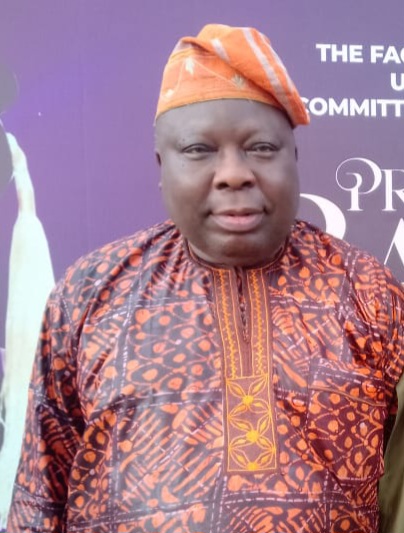Adesina Badru, a don at the University of Lagos, Akoka, Yaba, Lagos, has declared that Nigeria has one of the highest multidimensional poverty rates in the world at 63 per cent.
Professor Badru made this disclosure at the recently-held Quarterly Policy Discourse meeting at the Centre for Economic Policy Analysis and Research (CEPAR), University of Lagos, Akoka, Yaba, Lagos.
Badru states that poverty is more than just low income. It includes health, education, and standard of living.
“A person is multi-dimensionally poor if they lack access to basic services and opportunities.
Unfortunately “Nigeria has one of the highest multidimensional poverty rates in the world.” Badru lamented.
He says inequality in Nigeria is deep-rooted across regions, genders, and economic classes, spanning unequal distribution of wealth, opportunities, and privileges within the society.
Citing the Multidimensional Poverty Index (MPI), Badru states that over 63% of Nigerians (133 million people) are multi-dimensionally poor while social inequality exists across board.
Huge wealth gap exists between the rich and the poor (Income Disparity); women earn less and have fewer opportunities (Gender Inequality); Northern regions face more poverty than Southern regions (Regional Disparities); and rural communities lack infrastructure and services (Urban-Rural divide).
The University Don provides further statistical insights to show Nigeria ranks highly in global poverty indexes with over 133 million people living in multidimensional poverty.
Rural areas have a higher poverty rate than urban areas while Northern states are more affected than Southern states, including women and children suffering more from poverty.
Badru notes the consequences of poverty and social inequality, including developmental implications.
The economic consequences includes low productivity and economic stagnation, high unemployment and underemployment and limited access to financial services while social consequences include poor access to healthcare and education, increased crime rates and insecurity and rising social tensions and political instability.
The developmental implications include Nigeria’s failure to meet SDG goals, high infant and maternal mortality rates and brain drain and youth migration.
Badru recommended that key policy interventions should involve:
- Education Investment: Free primary and secondary education
- Healthcare Improvements: Universal health coverage, affordable healthcare
- Economic Empowerment: Job creation, entrepreneurship support
- Gender-Inclusive Policies: Equal pay, more women in leadership
Strategic approaches should include Regional Development Programs such as investment in infrastructure, industries, and tech hubs
Financial Inclusion should also include access to microcredit, mobile banking, SME loans Public-Private Partnerships (PPP), engage private companies in social investments while there should be Progressive Taxation: Tax the rich more to fund social programs.
Community-driven solutions should encourage grassroots participation.
Government should implement transparent policies and improve infrastructure and strengthen anticorruption efforts
Private sector should invest in corporate social responsibility (CSR), support job creation and skill acquisition programs while civil societies should provide funding and development assistance and advocate for policy reforms
Professor Badru concludes that poverty in Nigeria is multidimensional—not just about money while social inequality worsens economic and political instability.
He states that strategic policies and strong institutions are key to long-term solutions while public-private partnerships and inclusive policies can drive change.
Professor Fatai Adesina Badru holds a PhD Sociology degree of the University of Lagos. He is a Fellow of the West African College of Nursing (WACN). He currently teaches and consucts researches as Professor of Social Work in the Department of Social Work of the Univeristry of Lagos. He is the immediate past Head of Department. He has many academic publications to his credit. His research interests include Medical Sociology, Health Economics, Clinical Social Work, Social Group Work and Comparative Social Policies
- Alex Ekemenah


